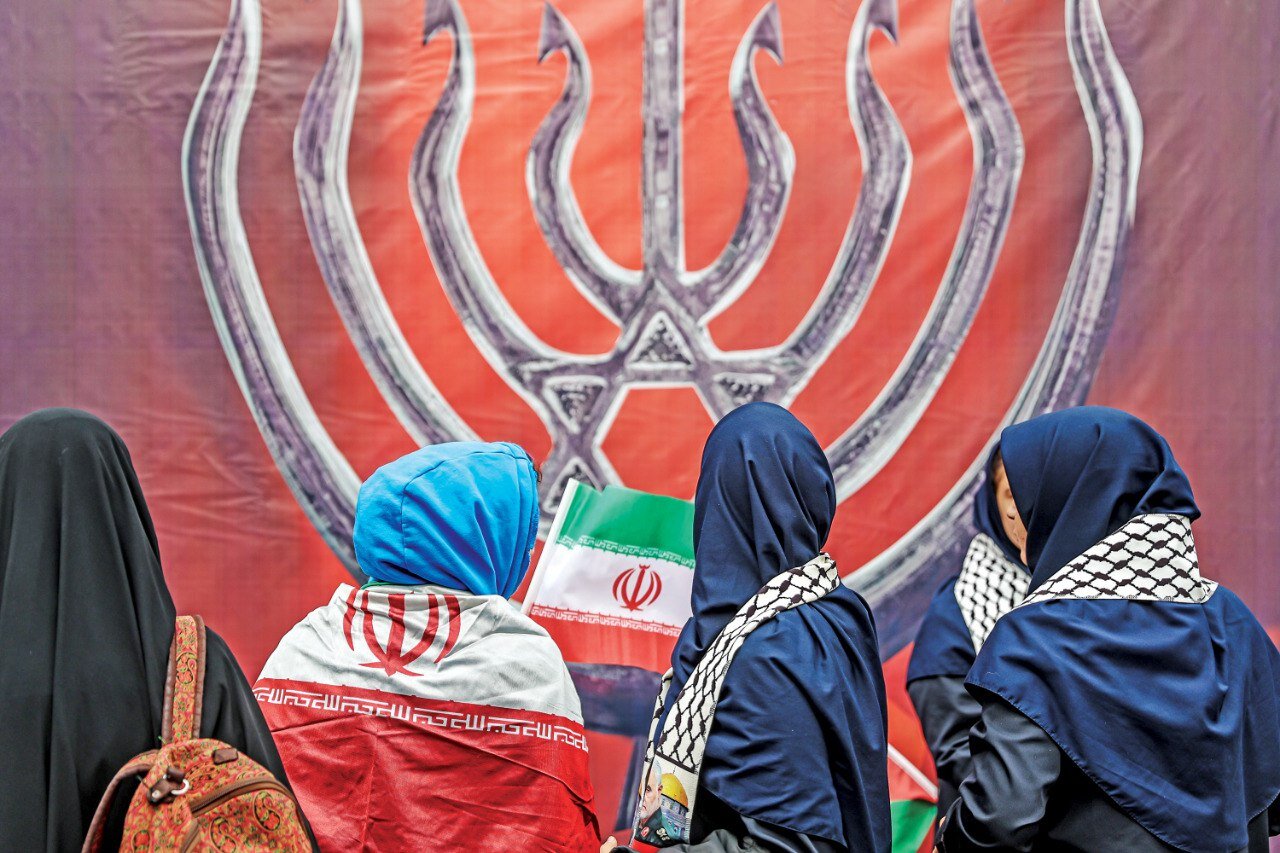Resistance endures
Resistance endures
TEHRAN – November 3rd, corresponding to Aban 13th in the Iranian calendar, holds significance in modern Iranian history as the date of three pivotal events: the exile of Ayatollah Khomeini, the founder of the Islamic Republic, the student protests of 1978, and the 1979 seizure of the former U.S. embassy in Tehran.

The 1979 seizure of the U.S. embassy wasn't just an event; it was a seismic shift in Iran's narrative. It was the day Iranians, fed up with U.S. meddling in their internal affairs, drew a line in the sand. They declared, in a thunderous roar, that they were done being pawns in someone else's game. It was a bold declaration of self-reliance, a symbolic act that ignited a fire for autonomy and control over their own destiny. It was a moment that reshaped Iran's history and propelled it onto a new, independent path.
Every year after that, Iranians have been taking to the streets on Aban 13th to reaffirm their commitment to the independent path they have charted. This year too, cities across the country saw thousands of demonstrators come out to the streets, to express that Iran’s fight against the Global Arrogance is nowhere near finished.
"This is my first time joining these protests," a young college student told Iranian reporters. "I used to hear people talk about fighting U.S. hegemony, but it never quite resonated with me. Now, after everything that's happened this past year, I understand. We need to rid ourselves of U.S. influence and its proxies in the region, or we'll keep seeing tragedies like those in Gaza and Lebanon repeat themselves."
Just as Israelis often point to October 7th of last year as the starting point of their conflict with Palestinians, Americans tend to fixate on 1979, the year Iranians seized the U.S. embassy and detained its staff, as the beginning of their hostilities with Iran. While American politicians conveniently overlook the fact that the U.S. embassy in Tehran served as a CIA hub for orchestrating plots against the Iranian people, they also conveniently forget that U.S. machinations against Iran began long before 1979.
When the topic of U.S. involvement in Iran's internal affairs arises, Iranians usually end up recalling a defining event that occurred over 70 years ago.
On August 19, 1953, a dark chapter in Iranian history unfolded as a U.S.-MI6 orchestrated military coup toppled Mohammad Mosaddegh, Iran's first democratically elected Prime Minister. This violent act, which claimed hundreds of lives, ushered in a period of autocracy under the reign of Mohammad Reza Pahlavi. The coup's primary goal was to secure a steady flow of cheap Iranian oil to the West. This marked the beginning of a 26-year reign of terror that ended only with the triumph of the Islamic Revolution in 1979.
Since the victory of the Islamic Revolution, the U.S. has not stopped its illegal endeavors to affect Iran’s decisions and moves despite having been kicked out of the country. Over the past four decades, Washington has employed a range of tactics, from war and assassinations to crippling sanctions and acts of sabotage, all in an attempt to undermine Iran's sovereignty and independence.
But there is an end to every beginning. After years of imperialist policies, it seems that the U.S. and its allies will have to leave the region sooner or later.
“The United States and the Israeli regime have reached the end of the line,” said the Commander in Chief of the Islamic Revolution Guard Corps (IRGC) while addressing a sea of demonstrators on Sunday. “That end will be brought to them by Iran and the Resistance,” he added, referring to several freedom movements that have taken in the past decades to fight U.S. imperialism.
Salami added Americans and its proxies like Israel know they are nearing their end, hence why they have resorted to some of the most harrowing tactics against the Islamic Ummah. “Collapsing political systems resort to illogical and irregular methods and violate all humanitarian principles. The U.S. and Israel cannot find a way for their political survival by massacring Muslims,” he noted.
Salami’s remarks come as Iran is preparing to respond to an Israeli attack that targeted Iranian soil last month. While the failed assault is believed to have been carried out by Israeli warplanes, analysts believe there is no doubt that the U.S. aided the regime by at least providing it with intelligence and logistics.
In remarks on Saturday, Leader of the Islamic Revolution Ayatollah Seyyed Ali Khamenei underscored that the actions of the enemy will not go unanswered by those who are working to fight them on behalf of the Iranian nation and that such actions will not be forgotten.
source: tehrantimes.com